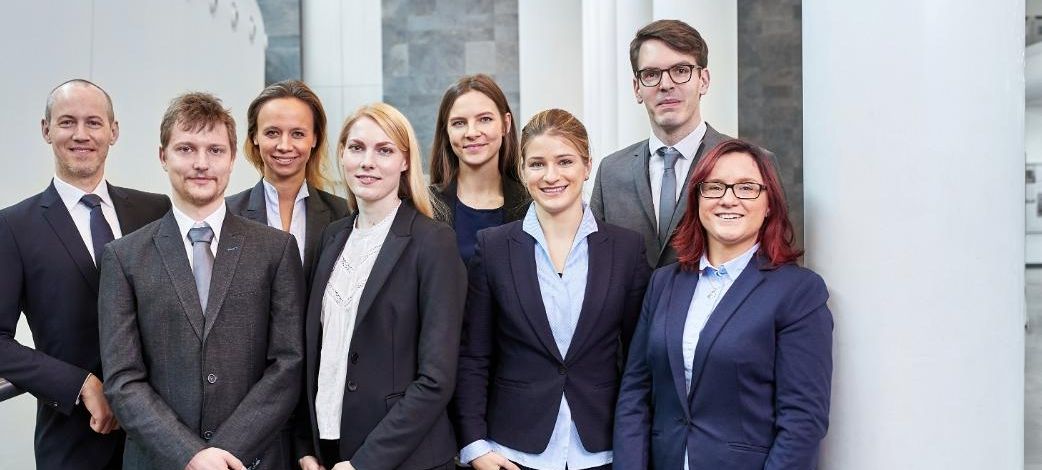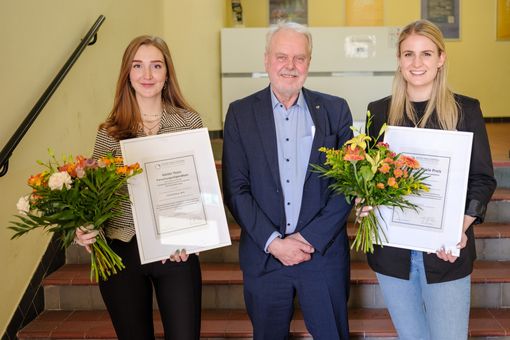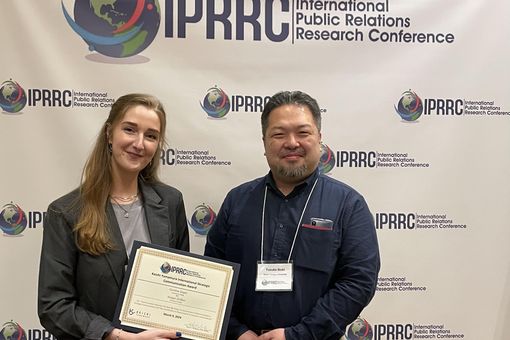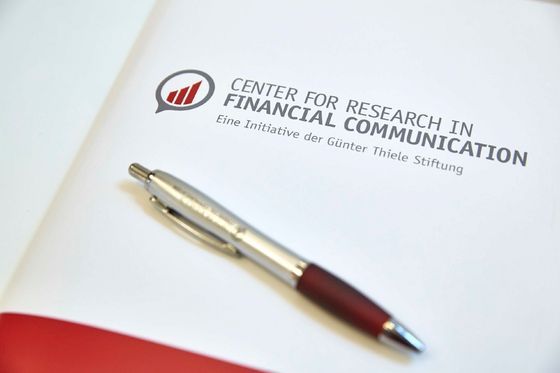![[Translate to English:] Fotos: Alexander Godulla](/fileadmin/_processed_/b/9/csm_Fotocollage_f%C3%BCr_Website_ff1d5bea3f.jpg)
Professorship for Communication Management
Current
Profile
Prof. Dr. Christian Pieter Hoffmann and his team deal with corporate communication, financial communication, political communication, online communication, and digital participation in research and teaching.
The current annual report 2023 provides an overview of the Communication Management professorship.
Focus Professorship for Communication Management
Strategic communication with customers, employees, investors, politicians, and stakeholders in society is a success factor. The practice is as creative as it is complex - classic press work meets content strategies on the Internet and social media, editorially designed corporate media, events, advertising measures, integrated campaigns and concepts for personal communication by managers, and live events. From the point of view of corporate management, beyond these forms of implementation, there are always a few fundamental questions: Why and when do companies have to communicate, what goals can be achieved, what framework conditions apply, and what consequences does the increasingly professionalized communication of the economy have for society as a whole?
Research on corporate communication combines communication science and business knowledge in order to answer the questions that arise. The spectrum of projects ranges from basic research projects from the self-image and value proposition of corporate communication and the theory of corporate communication to empirical studies on current approaches in practice, e.g. evaluation and success control, integration, and leadership or CEO and supervisory committee communication.
Communication in the capital market is heavily regulated, often mandatory rather than creative, and closely linked to economic goals. Unlike any other area of corporate communication, global rules of the market and shaping of opinion must be observed. The research focuses on the communication between companies and investors and owners (investor relations), as well as banks and other financiers. Specific requirements for communication with analysts and the business/financial press are just as important as critical success situations that affect the capital markets, e.g. mergers & acquisitions, IPOs, and restructurings. Studies also analyze concrete financial communication measures. In addition to the use of the Internet and social media, this affects the change in reporting through the presentation of strategies and intangible values as well as the establishment of sustainability reports and integrated reporting.
The activities of the Professorship for Communication Management in the field of financial communication are bundled in the Center for Research in Financial Communication.
The interaction of politics, media, and organized interests in the democratic process as well as communication strategies of different actors are the focus of this research field. The spectrum ranges from campaigns and lobbying to participation by citizens.
A special focus is dedicated to digital media, which enable new forms of political communication, campaigns, information and disinformation, participation and involvement. Effects on reputation and trust in institutions and political actors are also analyzed.
The technological and social change in the course of digitization has fundamentally changed the conditions of strategic communication. As a result, organizations are increasingly using online platforms and tools for strategic communication with different reference groups.
This poses a challenge for communication management since both the requirements of the stakeholders and the work in the communication departments are changing. Online specifics offer both potential and challenges in equal measure: topicality, interactivity, and multimedia require new concepts and the integration of individual measures into consistent communication strategies.
The different fields of activity of strategic communication on the Internet as well as organizational and content-related challenges of online communication are theoretically located in communication studies and are analyzed empirically using different methods.
At a time when almost 90 percent of the German-speaking population aged 14 and over and almost everyone under the age of 30 use the Internet, the central social challenge of digitization is no longer enabling the use of digital media. Rather, the decisive question is: How do users manage to use digital media in a constructive manner and avoid destructive forms of use? "Digital participation" describes the active use of digital media to consciously pursue personal and common goals. It is the central prerequisite for the constructive use of digital media. Active and self-determined participation in the diverse opportunities of digitization is only possible on the basis of digital participation. Digital participation reduces a threatening “digital divide” in society. Only through digital participation do individuals go from being driven to shaping digitization.
In the research field "Digital Participation", the prerequisites, forms, and consequences of an active use of digital media in diverse social contexts are examined. In addition to the users, the organizations and institutions that make offers of digital participation – such as companies, public institutions and parties – are also considered.
Team
In addition to Professor Hoffmann, the team currently consists of three research associates, one research assistant, and the secretary’s office.
Research
The team at the Professorship for Communication Management researches current topics in the areas of corporate communication, financial communication, political communication, online communication, and digital participation.







